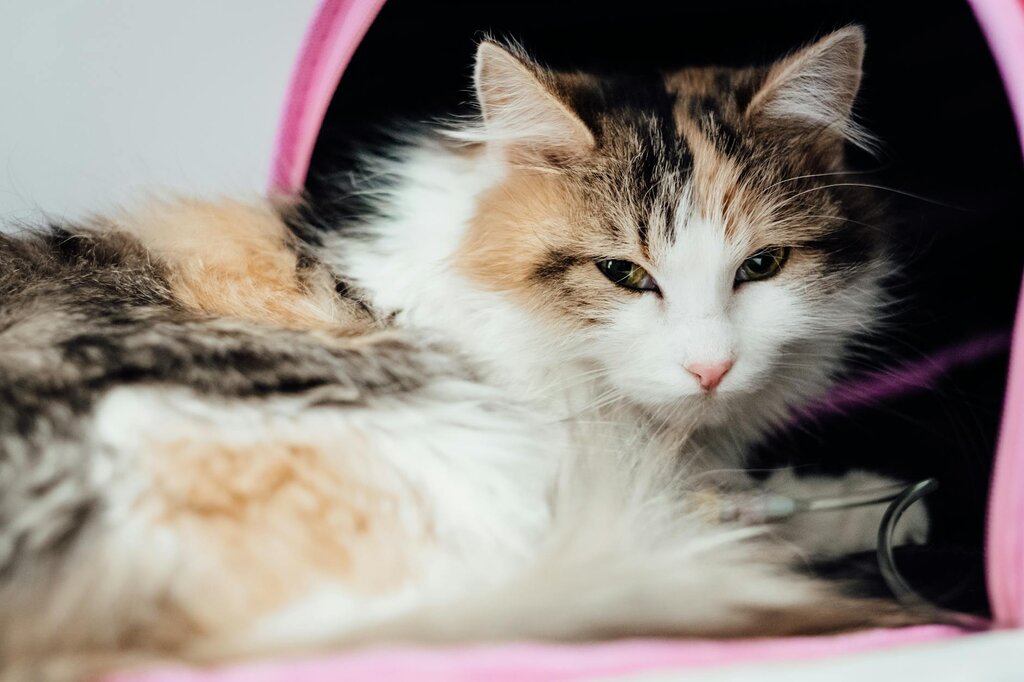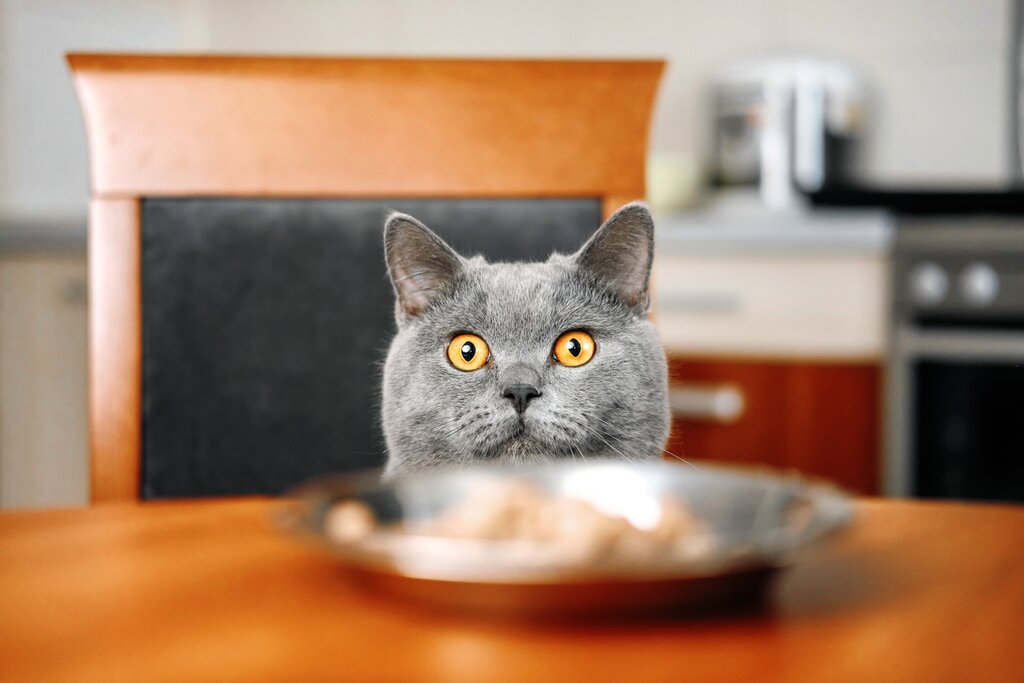Last Updated: 28/03/2025
Fussy Cat Feeding Tips
Fussy cat when it comes to food? Our top tips can help!
Author: Dr Katelyn Bailey BVSc (Hons)
Reading Time: 18 minutes - medium read
Is it difficult to find something that your kitty won't turn their nose up at, or has your cat become less interested in their food for no particular reason?
Fussy eating is quite common and can be a very frustrating issue for pet owners to deal with. Read on for more information about what causes fussy eating as well as some of the Vet Squad's top tips for managing cats with picky appetites.
First thing's first: rule out underlying medical issues

First of all, it's important to ensure that a picky appetite is not actually a loss of appetite. A loss of appetite can occur due to illnesses that cause nausea, discomfort or pain, including but not limited to gastrointestinal, joint, cardiac, respiratory, renal and dental issues. If your cat is showing other signs along with a reduced interest in food, or if their 'fussy' behaviour is out of character, a vet check is recommended to rule out any medical causes. In most cases appetite improves when the underlying condition is treated or appropriately managed.
Signs that may indicate an underlying health issue:
- Vomiting
- Diarrhoea
- Drooling
- Lethargy/reduction in activity
- Bad breath
- Exercise intolerance
- Change in drinking habits
- Weight loss
- Frequent lip licking
- Lameness or stiffness
- Coughing
Why are some cats fussy eaters?
While there are many reasons why a cat may be a picky eater, some of the most common are:
1. Specific personal preference: Like us, most cats have personal preferences and may favour a certain texture, flavour and/or consistency when it comes to their food. Some cats will take this to the extreme and refuse anything else. These cats often eat their preferred foods with no issues but repeatedly turn their nose up at other foods.
2. Breed: While most cats will have food preferences, in the Vet Squad's experience purebred cats like Siamese, Persians and Oriental Shorthairs can be fussier than mixed breeds.
3. Learned behaviour: Some cats become fussier over time because they learn to wait for something better. Often owners inadvertently create this issue by giving in and offering their pet a higher-value treat if they don't eat their usual food. Feeding tasty 'human' food and changing diets too regularly can also contribute to this problem.
4. Not enough variety: While some cats are perfectly happy to remain on the same food for life, others initially eat their food well but become bored of it after a while. These cats will gradually show less interest in their usual food in favour of something new.
4. Anxiety: Anxiety is a common reason for cats to be fussy with their food. Periods of change or adjustment, such as moving house or a new family member (two- or four-legged) can affect appetite. Lack of privacy when eating and noisy eating environments can also trigger anxiety. These cats may have a fluctuating, 'on and off' appetite, or suddenly go off their food when a stressor occurs.
5. They're not food motivated: Many cats naturally prefer to graze on their food throughout the day rather than eat it all at once and this eating pattern can be mistaken for a picky appetite. Likewise, cats that are attention-motivated rather than food-motivated can be misidentified as fussy eaters.
How to manage fussy eating

An effective management approach will depend on the underlying cause of your pet's fussy eating. You may need to play around with a few different suggestions to find the ones that work best for you and your cat.
It's important to be persistent and consistent with your approach to feeding. Make sure everyone in the household is on board and decide how long to persist with a certain food- remember that offering too much variety right from the start can inadvertently train some fussy eaters to hold out for "yummier" food each time. We recommend committing to one type of diet for at least a few weeks and giving your cat some time to adjust to it before making any further changes.
Always make sure to have a period of transition when introducing a food as this reduces the risk of gastrointestinal upset and increases the chance that your kitty will accept the food.
Make mealtimes for fun
Tips for selecting a new food
If you find that your cat is still not eating their current food after trying the above tips and persisting for several weeks, it may be time to select a new one to try. With so many different options on the market these days it can be difficult to know where to start, and the following points can help to guide your decision.
- Firstly, if your pet is on a prescription diet, discuss alternative options with your veterinarian. In most cases a similar option will be available in another brand or flavour
- If you have noticed that your cat has preferred a certain flavour or texture in the past try to find a new food with similar characteristics
- If you have not noticed a pattern with your cat's previous preferences, you could try a brand new flavour such as kangaroo, turkey or lamb, or a new type of wet food (for example, jelly rather than gravy)
- Stick to a premium brand- these tend to be more palatable and have more targeted nutrition than supermarket brands
- Some cats may prefer a naturally preserved diet that is freeze- or air-dried. Because these foods are naturally and gently preserved they tend to retain more flavour. As an added bonus most of them are also more nutrient dense compared to standard kibble, which is a good feature for chronic fussy eaters.
Further Reading
Want to read more? Check out our other articles:
History
Our experts continually monitor the health and wellness space and we update our articles when new information becomes available.
July 13 2023
Written by Dr Katelyn Bailey BVSc (Hons)Dr Katelyn Bailey BVSc (Hons)
Veterinarian
Dr Katelyn Bailey graduated as a veterinarian from The University of Queensland in 2018 and has since worked in small animal general practice clinics in south-east Queensland. Her special interests include feline medicine and behaviour, preventative health care, internal medicine, research and senior pet care. Katelyn is a strong proponent of the human-animal bond and loves to hear about the quirks that make each pet so special.

